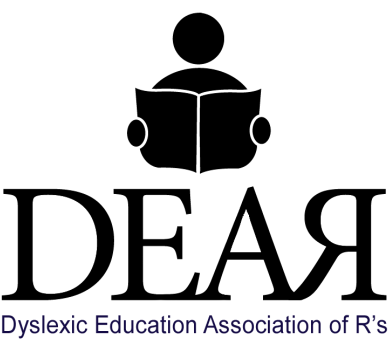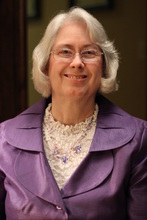More than 12 years later as a veteran teacher and mother of six, I was still ill equipped to identify the root issue in myself or the youngest of my six children. Though I had taught all grade levels from K-5 through 12th, as well as home schooled 3 of those 12 years, I encountered an extreme learning disability in my youngest that I had never observed anywhere else. I didn't know what it was, I didn't have any answers, and I didn't know where to look. Though I carefully analyzed my son's situation and could clearly explain the abnormality, I could not match his problem to anything. I did not suspect dyslexia because none of the typical symptoms fit my son's puzzle, my college textbook stereotypes, nor to anything I had encountered over 12 years of teaching. I chose to delay kindergarten for one year and began to pray and search for answers. My son's education was far too important to chance jeopardizing it because I didn't know how to help him. Beyond that, I cringed at the thought of becoming so frustrated with his inability that he began to view himself as inferior and assume a false burden of guilt that was never meant to be his. Nor could I bear the thought that he would begin to think that the mighty God of the universe, the One I had taught him since infancy was perfect and holy, had made a mistake when creating him, forever skewing how he would see God, Jesus, and the Holy Spirit.
As a seasoned educator now in my 31st year of teaching and 19 years beyond the year I decided to delay kindergarten, it is easier to see what had happened in my education course. It was the same dilemma which has plagued academia for centuries. Preconceived ideas of an existing problem are used to formulate tests which are supposed to prove or disprove the problem's existence and degree. Often the tests themselves are engineered in such a way that the ability to determine a clear assessment is masked by layers of information all purporting a cumulative solution for the problem peculiar to the group of intellectuals who defined it. The political correctness of how the defined problem is then viewed further colors an accurate diagnosis.
Each group justifiably embraces the research and heritage of its leadership and proudly unfurls the banner of previous discoveries, achievements, and honors. Standing members lead the charge for further disclosures in conquest of the illusive solution. Frequently new groups develop specifically to approach the problem anew from a different angle, dissatisfied with the inaccuracies or oversights of those who have already claimed a solution. Time eventually produces a multitude of organizations targeting the same problem, espousing similar philosophies but creating different vocabularies which mirror and mimic each other with tweaks and twists. Inevitably philosophical disparities reach such extremes that whole camps of intellectualism regarding the same subject polarize. However, seldom are the Words of the One Who first gave literacy searched to identify roots and solutions--the Holy Bible.
A foremost authority in ancient languages and linguistic Dr. Miles Jones, explains in his book, The Writing of God, how the human race emerged from its oral tradition at Mt. Sinai during the 15th Century, encountered literacy, and developed the ability to reason and think abstractly rather than in mere simplistic, tangible concrete terms. Centuries rolled by and the vast majority of intellectuals became increasingly confident of the human race's ability to discover and solve independently of the One who had originally empowered a chosen nation, Israel, to spread literacy to the four corners of the earth. That humanistic stance subsequently clouded mankind's mental capacity to evaluate in terms of root causes and solutions, producing a menagerie of think tanks determined to find solutions by lopping branches instead of attacking the root.
Meanwhile those plagued by the problem's complexities find themselves at the mercy of recognized intelligence Each group promotes its theory and affixes monetary value to the assistance one can hope to receive once inside its doors. Usually that rite of entry also funds continued research by department heads and salaries of layered administration. Consequently, the fee reflects the needs of a convoluted organization instead of one human being's privilege to reach out to another human being in distress. Capitalizing upon and benefiting from another's misfortune is never perceived as a moral issue.
History documents amazing discoveries and inventions attributed to numbers of unlikely individuals outside the recognized status quo of academic leadership. However, their existence outside the ranks provided the freedom and courage needed to venture into uncharted areas without peer review or reprisal. Each anchored their soul to a foundational premise, and thus tethered, they dared to investigate the unknown or accepted. Such were Columbus, Einstein, Franklin, Edison, Braille, Sullivan, Keller, Currie, Carver, Lincoln, Galileo, Newton, Salk, Washington, Copernicus, Gutenberg Luther, Bunyan, Shakespeare, King James I, and a host of others. It is those pioneers to whom mankind is indebted for the quality of life enjoyed across all socio-economic and demographic boundaries. Without exception, those frontrunners, and many others just like them, acknowledged God as Creator and looked to Him for wisdom in their quests. The answer to the root of dyslexia and its complexities are found in Scripture. I am convinced the reason for DEAR's astounding success is embodied in the fact that this program approaches dyslexia from God's vantage point and therefore answers and unravels the problem accordingly from God's perspective.


 RSS Feed
RSS Feed
